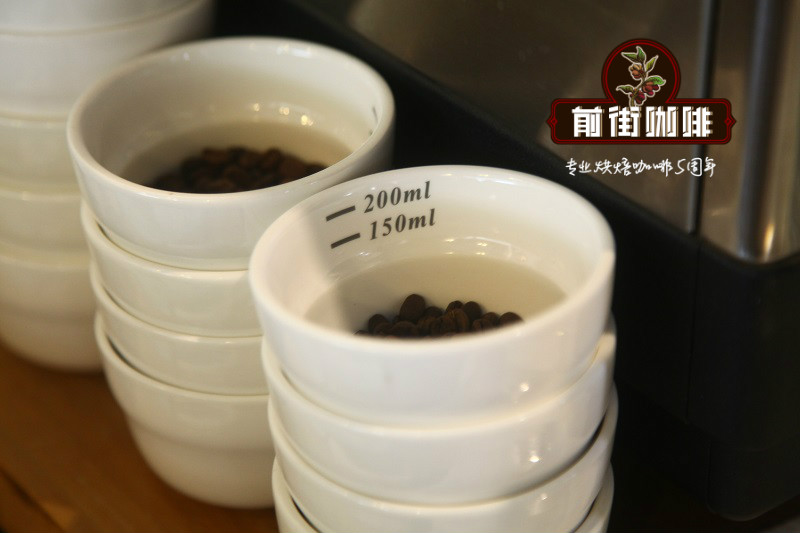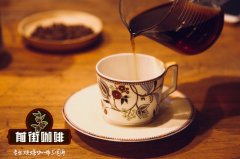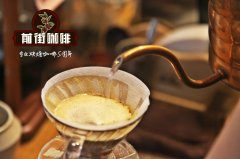Not all Jamaican coffee is Blue Mountain. Buy Blue Mountain Coffee according to these standards.

Professional coffee knowledge exchange more coffee bean information please follow the coffee workshop (Wechat official account cafe_style)
Is the origin of the world-famous "Blue Mountain Coffee". The coffee produced in Jamaica is polarized, and the coffee grown in the lowlands is of ordinary quality, but the Jamaican Blue Mountain coffee produced in the highlands is regarded as the most advanced variety in the world and is regarded as the most famous, expensive and controversial coffee in the world. With all the qualities of coffee, the taste is rich, full-bodied, moderate and perfect sour taste, three flavors (sweet, sour, bitter) excellent blending, for the coffee grade, generally single drink
Since 1953, CIB has classified coffee grown in this region as Blue Mountain Coffee according to its special origin. By 1980, Jamaican Blue Mountain Coffee had become so famous that some British and American retailers labeled it as "Blue Mountain Coffee" on non-Jamaican coffee. To this end, CIB specially designed a label that can only be affixed to 100% Jamaican Blue Mountain Coffee in 1984-1985. There are also Jamaican alpine coffee and preferred coffee Logo.
Jamaica is a tiny coffee grower, accounting for only 0.02 per cent of the world market, with 85 per cent of its exports to Japan.
Among them, the leading role is the Jamaican Coffee Industry Association (Coffee Industry Board, referred to as CIB), which was established in 1948 to promote the development of the Jamaican coffee industry, improve the income of coffee farmers, protect the quality of Jamaican coffee, and sell Jamaican coffee around the world.
In order to ensure the quality of Blue Mountain Coffee, CIB has made a series of specifications:
1. Clearly define the production area
two。 Choose to plant Arabica tin card varieties
3. Training coffee farmers (planting techniques, harvest handling techniques, environmental protection, etc.)
4. Improve coffee processing skills (insist on picking by hand, picking only fully ripe red fruits; use water washing; control drying conditions so that the target moisture content of coffee beans is 12%)
Related recommendations: Jamaica Blue Mountain hand flushing suggestion, temperature, grinding degree, powder-water ratio to introduce flavor and taste description
Important Notice :
前街咖啡 FrontStreet Coffee has moved to new addredd:
FrontStreet Coffee Address: 315,Donghua East Road,GuangZhou
Tel:020 38364473
- Prev

The History of Jamaican Coffee: where did the World's most expensive Blue Mountain Coffee come from
Professional coffee knowledge exchange more information about coffee beans Please follow the coffee workshop (Wechat official account cafe_style) the real Blue Mountain Coffee is one of the most advantageous growing conditions in the world, Jamaica's weather, geological structure and terrain together provide an ideal place. The ridge across Jamaica extends to the eastern part of the island, with the Blue Mountains rising to more than 2100 meters.
- Next

Why is Blue Mountain coffee so popular? how does Jamaican coffee taste?
Professional coffee knowledge exchange more coffee bean information Please pay attention to the coffee workshop (Wechat official account cafe_style) Pure Jamaican Blue Mountain Coffee perfectly combines the unique sour, bitter, sweet and mellow flavors of coffee to form a strong and attractive elegant atmosphere, which is unmatched by any other coffee. People who love Blue Mountain Coffee say: it is a coffee that combines all the advantages of good coffee.
Related
- Beginners will see the "Coffee pull flower" guide!
- What is the difference between ice blog purified milk and ordinary milk coffee?
- Why is the Philippines the largest producer of crops in Liberia?
- For coffee extraction, should the fine powder be retained?
- How does extracted espresso fill pressed powder? How much strength does it take to press the powder?
- How to make jasmine cold extract coffee? Is the jasmine + latte good?
- Will this little toy really make the coffee taste better? How does Lily Drip affect coffee extraction?
- Will the action of slapping the filter cup also affect coffee extraction?
- What's the difference between powder-to-water ratio and powder-to-liquid ratio?
- What is the Ethiopian local species? What does it have to do with Heirloom native species?

